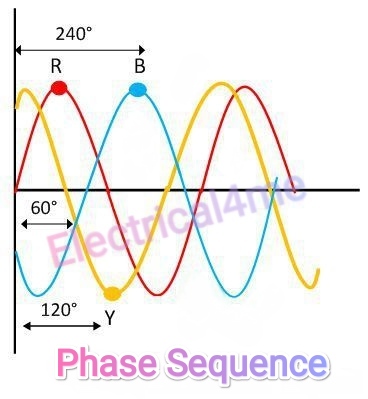What is Single Phase AC Supply?
Understanding the Basics
Are you looking to gain knowledge about the basics of electrical power supply? If so, you might have come across the term "single-phase AC supply." In this article, we'll dive deep into the concept of single-phase AC supply, its advantages, disadvantages, and frequently asked questions.
Introduction
In today's world, electricity is an essential commodity that we rely on for a multitude of tasks. Whether it's powering our homes, businesses, or industrial machines, electricity is a crucial part of our daily lives. But, have you ever wondered how electricity reaches your home or business? What type of electrical supply is used, and how does it work? Well, that's what we're going to discuss in this article.
What is Single Phase AC Supply?
Single-phase AC supply is a type of electrical power supply that provides a single sinusoidal voltage waveform to power devices.
It's commonly used in residential and small-scale commercial applications. In a single-phase AC supply, the voltage oscillates between positive and negative values, completing one cycle in each direction within a given time frame.
The voltage value and frequency of the waveform may vary based on the application's requirements.
Advantages of Single Phase AC Supply
Single-phase AC supply has several advantages, such as:
- Cost-effective: Single-phase AC supply is less expensive to install and operate than three-phase AC supply, making it an ideal choice for residential and small-scale commercial applications.
- Simple Design: Single-phase AC supply is relatively easy to design, as it requires fewer components than a three-phase AC supply.
- Easy to Maintain: As single-phase AC supply systems are simple, they are easy to maintain and repair in case of any faults.
Disadvantages of Single Phase AC Supply
Single-phase AC supply also has a few disadvantages, such as:
- Limited Power: Single-phase AC supply has lower power capacity compared to three-phase AC supply, which limits its application in large-scale industries.
- Voltage Fluctuations: As single-phase AC supply is susceptible to voltage fluctuations, it may not be suitable for devices that require constant voltage levels.
- Unbalanced Loads: When connected to unbalanced loads, single-phase AC supply may cause voltage drops, which can affect the connected devices' performance.
Applications of Single Phase AC Supply
Single-phase AC supply is commonly used in residential and small-scale commercial applications, such as:
- Lighting: Single-phase AC supply is commonly used to power lighting systems in homes and small businesses.
- Household Appliances: Many household appliances, such as refrigerators, air conditioners, and washing machines, are designed to run on single-phase AC supply.
- Small Electric Motors: Single-phase AC supply is used to power small electric motors, such as those used in fans, pumps, and small machinery.
Frequently Asked Questions
What is the difference between single-phase AC supply and three-phase AC supply?
Single-phase AC supply provides a single sinusoidal waveform to power devices, while three-phase AC supply provides three sinusoidal waveforms. Three-phase AC supply is used in large-scale industries and applications that require high power capacity.
Can a three-phase device be connected to a single-phase supply?
No, a three-phase device cannot be directly connected to a single-phase supply. A device that requires three-phase AC supply must be connected to a three-phase power source.
What is the frequency of a single-phase AC supply?
The frequency of a single-phase AC supply depends on the location and may vary from country to country. In the United States, the frequency is typically 60 Hz, while in Europe, it is 50 Hz.
Can a single-phase motor run on a three-phase supply?
Yes, a single-phase motor can run on a three-phase supply with the help of a phase converter.
What are the advantages of a three-phase AC supply?
The advantages of a three-phase AC supply include higher power capacity, better efficiency, and smoother operation of connected devices.
Why is single-phase AC supply not suitable for large-scale industries?
Single-phase AC supply has limited power capacity and is susceptible to voltage fluctuations, making it unsuitable for large-scale industries that require high power capacity and stable voltage levels.
Conclusion
In conclusion, single-phase AC supply is a type of electrical power supply commonly used in residential and small-scale commercial applications.
It's cost-effective, easy to maintain, and has a simple design. However, it has limited power capacity and is susceptible to voltage fluctuations.
Understanding the basics of single-phase AC supply is essential, whether you're an electrical engineer or a homeowner. We hope this article has provided you with a better understanding of single-phase AC supply.

.png)



